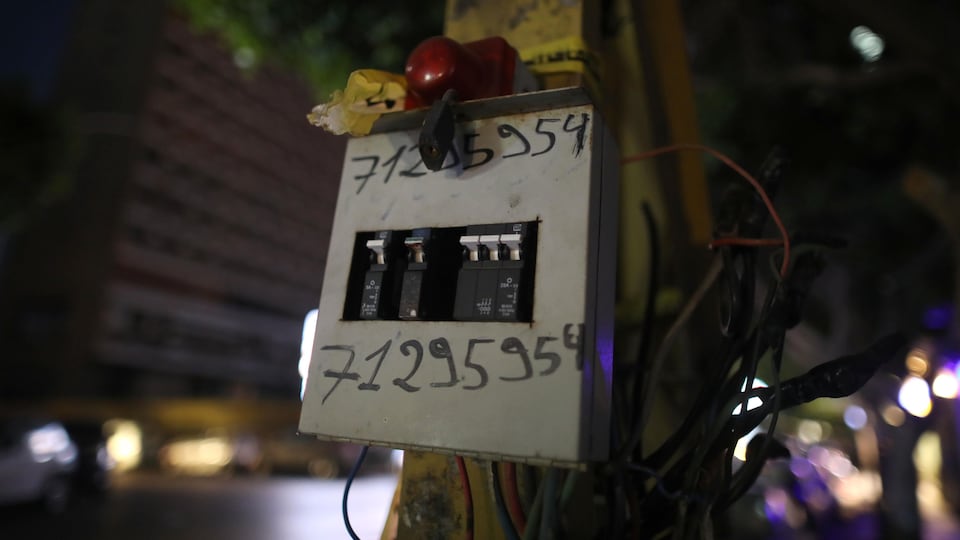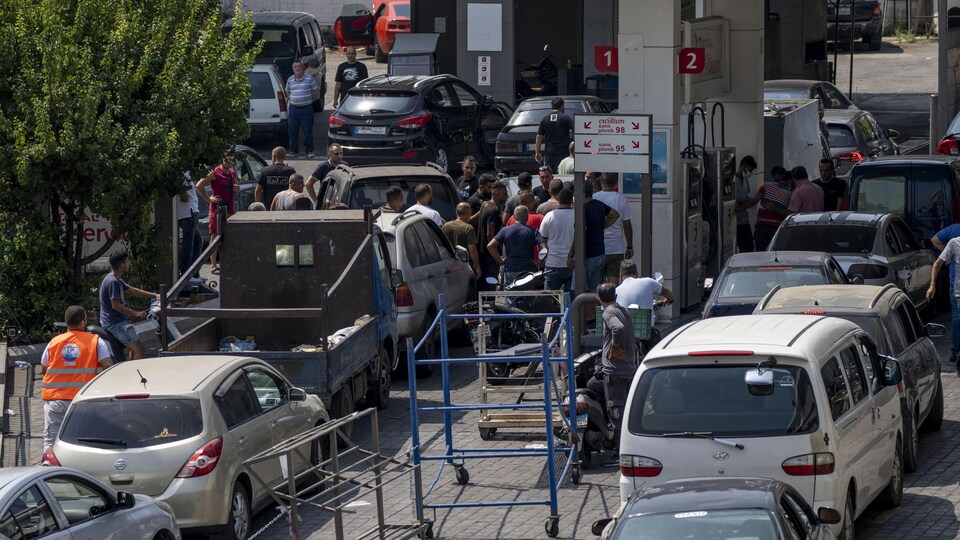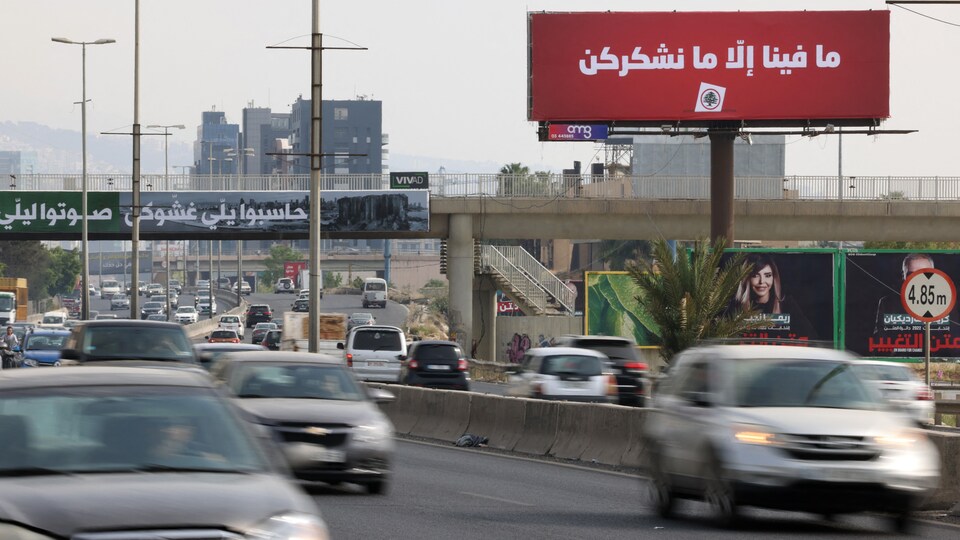Lebanon, a small Mediterranean country with 6.5 million inhabitants (including a million and a half refugees from Syria), voted on May 15 to renew its Chamber of Deputies-even with the word “renew” here seems to be a figure of optimistic style.
This is the first election since the Land of Cedars plunged into one of the worst economic crises in modern history, after the youth uprising in autumn 2019 and after the eruption in the port of August 2020., tragic metaphor and national catastrophe.
This country, which prides itself on being the only democracy in the Middle East, has long been at the heart of geopolitics in the Arab world. Today, it is the victim of discontent, even the despair of a large portion of the population and its indestructible communities, thrown into material ruin.
Not heard of for two centuries
According to the World Bank, Lebanon in the years 2019-2021 represents the largest peacetime economic collapse seen in two centuries on this planet.
Lebanon’s GDP dropped from US $ 52 billion in 2019 to US $ 22 billion in 2021, a 58% slide. Even the impressive recessions caused by the pandemic in most countries around the world – which often revolve around the mid -lower part – have faded in comparison.
Within two and a half years, more than 70% of Lebanese fell into extreme poverty: many poor people became extremely miserable, but also those in the middle-class with good housing, but that, literally, can no longer afford to buy bread and milk. in the refrigerator, which often does not work, because there is a lack of electricity.
Add to this a national currency, the pound, which is now only worth a tenth of its value in 2019. Banks, long pillars of this ancient. Middle East Switzerland, which almost never works (money is blocked, you can no longer cash a check). Not to mention the widespread shortage of basic necessities, food and medicine.
We still want to vote
Despite all this, on May 15 we saw lines of voters forming in front of polling stations. Despite being tired in the face of this difficulty. Despite the disgust with a political system denounced as communitarian and mafia-like (with Shiite, Sunni, Christian, Druze parties led by clan leaders who remained wealthy), we were still able to organize elections with participation rate of 50 %, which is equal to the average average in this country.
Which means there are still people in Lebanon who make sense to vote.
If we look at the results, the names of the leading parties are the same as before. Hezbollah, Amal (Shiite parties supported by Tehran), Independent Patriotic Movement of President Michel Aoun, Christian, but allied with the Shiites (and therefore of Syria and Iran) and the Lebanese Forces, a Christian party, but anti-Shiite and anti- Iran (which is well done). They are still there.
The notable absentee was Current of the Future, the Sunni party of former Prime Minister Saad Hariri-the son of Rafic Hariri, assassinated in 2005-who boycotted the election, to the annoyance of his protection Saudi Arabia, one of the two regional powers, along with Iran, are pulling strings here.
Modest but significant success revolutionaries
How about the movements that are said Thaoura – ang Revolution of 2019-your secular youth in the streets, who demand an end to this komunitarian-religious system where the leaders of the old parties are pulling strings?
This is one of the two main facts of this election: barely formed by the end of the movement in 2019, these formations have managed – with difficulty – to break through the walls of the system. A system made to measure against them, and for parties that by definition are community, religious. A system that, because of tradition, social pressure, but also electoral law, confines the population (and its endless ethno-religious subdivisions) to the obligation to vote the clan, the extended family, the cacique.
In Lebanon, the local leader (deputy) and his party also represent the authority in the area, the economic agent, the lender, the insurance policy and, sometimes, the police as a whole. He solves small problems: very concrete, this is an example uncle Bassem, well placed at party X and will find work for your child; so you vote for him.
That’s how it worked – or rather, how it worked – until the economic collapse of the past two years. And this is what all these boys and girls (usually not veiled), in the fall of 2019, were up in the street, in essence:
We want to get out of this system, we want to get rid of all these bandits, we want a secular, civil, democratic state. We want the sovereignty of Lebanon, freed from the care of Iran and Saudi Arabia. We want social justice, the fight against corruption, gender equality.
Extensive program! Finally, when the final results came out two days after the vote, on May 17, it was discovered that its claimants Thaouradespite the electoral system forcing them to run for designated seats druze, Sunnis where Christiansthese assertive secularists – possibly hidden atheists – won 13 seats out of 128.
People will say: this is moderate and still leaves a large majority in traditional parties. But according to some studies read and heard in the days that followed, it was a remarkable success, against the thick walls of Lebanese political immobility.
Decline of the Shiite camp
The other key fact of this election is the dramatic decline of the Shiite clan, represented by Hezbollah – the party of god – which is both a political party, an armed militia (stronger than the official Lebanese army) and a real state within state.
However, Hezbollah, with its alter ego Amal party and President Michel Aoun’s pro-Iranian Christian group (allied with the Shiites), no longer has an absolute majority in the House of Deputies; together they did not reach 64 deputies.
This fact may change the political dynamics, and give 13 revolutionaries a new power, as a pivot between pro-Shiites, supported by Iran, and others half Lebanese policy – supported by the Saudis and less hostile to the Westerners.
Why traditional formations still seem to resist, despite the described numbersystem collapse?
ang system resist
It is that the economic and social collapse has indeed taken place. However, the collapse of the political system was slower.
First of all, there was an organizational problem for the pro -Thaoura: going from demonstrations in the streets to an organization structured with political parties was not easy – especially since there were two years of pandemic, which was very difficult in Lebanon.
The young revolutionaries fought against an old system that still had resources. And then, these new formations were broken, within a year and a half, by the departure of a large number of their active supporters: young people, intellectuals, professionals and executives who left the country in 2020. and 2021 to Europe, Canada, Gulf countries.
Moreover, these formations presented themselves in scattered order – in half a dozen lists – rather than forming a united front, which could have won 15 or 20 seats.
The system is inherently stubborn to trans-denominational or non-denominational parties. There was also intimidation; Beating cases have been reported against alternative candidates, especially when they look good and attract voters.
There is also the relatively widespread practice of buying votes, a natural product of this client system.
One hundred dollars for one vote
May 15 in Beirut, according to The East-The Sun., the main Lebanese French-language daily, a guaranteed vote costs $ 100. More if you can bring the whole extended family and apparently more if it’s approaching closing time for the polls!
So the economy collapsed, yes, but not the Lebanese confessional political system, which is still resisting, even as it begins to have holes. By failing to overthrow this old denominational and community system, we saw in this election the beginning of significant change.
And then, seen from Tehran, the decline of the Shiite clan – who will no longer have control over the government – is a disappointment for the Iranian government and its regional influence. But on the contrary, it could be (pretty) good news for Paris or for Washington.
Source: Radio-Canada


